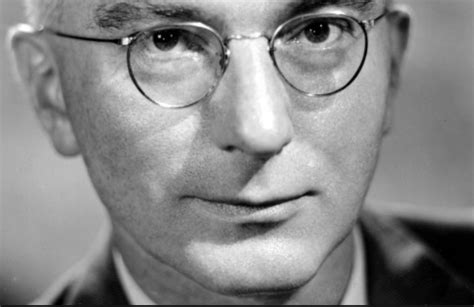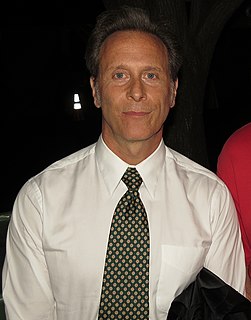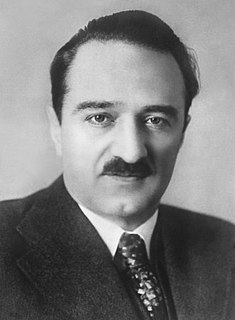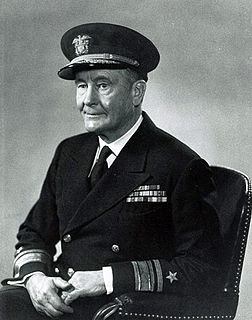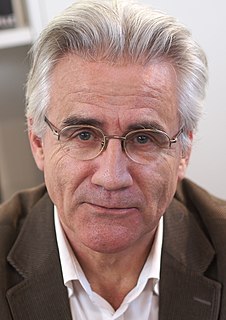Top 414 Marx Quotes & Sayings - Page 7
Explore popular Marx quotes.
Last updated on December 19, 2024.
The various systems of doctrine that have held dominion over man have been demonstrated to be true beyond all question by rationalists of such power-to name only a few-as Aquinas and Calvin and Hegel and Marx. Guided by these master hands the intellect has shown itself more deadly than cholera or bubonic plague and far more cruel. The incompatibility with one another of all the great systems of doctrine might surely be have expected to provoke some curiosity about their nature.
They [the New World Order] want to reduce the population [to 500 million] and their target date is May 5th of 2000. [.....] The demons who call themselves spirit guides have told them. "You know, you have to reduce the population by May 5th." Because May 5th is Karl Marx's birthday, you know, enter the Age of Aquarius. [.....] I suspect they may use Y2K as an excuse to create some little problems here, we shall have to wait and see.
Karl Marx was the foremost hater and most incessant whiner in the history of Western Civilization. He was a spoiled, overeducated brat who never grew up; he just grew more shrill as he grew older. His lifelong hatred and whining have led to the deaths (so far) of perhaps a hundred million people, depending on how many people perished under Mao's tyranny. We will probably never know.
Communism, like any other revealed religion, is largely made up of prophecies. When they fail to come off its clergy simply say that they will be realized later on. Thus, if we have another boom, they will argue that the collapse of capitalism is only postponed. The fact that the greatest booms ever heard of followed Marx's formal prophecy of the downfall of capitalism is already forgotten, just as millions have long since forgotten the early Christian prophecy that the end of the world was at hand. The first Christians accepted postponements as docilely as the Communists of today.
It is absurd for anyone to think that Soviet "Marxism" is a correct application of the thought of Karl Marx. No doubt Soviet propaganda represented it this way. But who believes Soviet propaganda? It is remarkable (but maybe not so remarkable after all, when you consider their motives) that apologists for capitalism, who would not accept Soviet propaganda on any other point, are eager to agree with it on this point.
The constancies and equivalences adumbrated work havoc with such settled topical blocks as myth and philosophy, natural reason and revelation, philosophy and religion, or the Orient with its cyclical time and Christianity with its linear history. And what is modem about the modem mind, one may ask, if Hegel, Comte, or Marx, in order to create an image of history that will support their ideological imperialism, still use the same techniques for distorting the reality of history as their Sumerian predecessors?
The merit of Marx is that he suddenly produces a qualitative change in the history of social thought. He interprets history, understands its dynamic, predicts the future, but in addition to predicting it (which would satisfy his scientific obligation), he expresses a revolutionary concept: the world must not only be interpreted, it must be transformed. Man ceases to be the slave and tool of his environment and converts himself into the architect of his own destiny.
Ever since Marx, leftists have known that the simplest way to controlling a country is via education, the news industry, and health care. If you, as a leader or as a member of a leadership organization can succeed in taking over those three things where only kids, young people, only learn what you want them to learn, they learn how horrible freedom is, how unfair capitalism is, how mean-spirited, all of this, how wonderful equality and egalitarian is. Whenever there is a communist invasion or revolution, the news outlets are the first things seized and then the schools and then health care.
I began to study again, and now for the first time really achieved an understanding of the content of the Jew Karl Marx's life effort. Only now did his Capital become really intelligible to me, and also the struggle of the Social Democracy against the national economy, which aims only to prepare the ground for the domination of truly international finance and stock exchange capital.
The whole gospel of Karl Marx can be summed up in a single sentence: Hate the man who is better off than you are. Never under any circumstances admit that his success may be due to his own efforts, to the productive contribution he has made to the whole community. Always attribute his success to the exploitation, the cheating, the more or less open robbery of others. Never under any circumstances admit that your own failure may be owing to your own weakness, or that the failure of anyone else may be due to his own defects - his laziness, incompetence, improvidence, or stupidity.
I am not sure just what Marx had in mind when he wrote that "philosophers have hitherto only interpreted the world in various ways; the point is to change it." Did he mean that philosophy could change the world, or that philosophers should turn to the higher priority of changing the world? If the former, then he presumably meant philosophy in a broad sense of the term, including analysis of the social order and ideas about why it should be changed, and how. In that broad sense, philosophy can play a role, indeed an essential role, in changing the world.
The system has a way of convincing people that because they live in the USA they are better off than all other people in the world. This gets them focused on the wrong things, of course, but it has been a tried and true way of deflecting class struggle, something I don't think Marx didn't fully anticipated. The education system, and the whole culture really, has a lot to do with how these feelings are transmitted to each new generation. When parents say their kids were heroes when they died for nothing in Iraq, you can see the power of this.
When you read Marx (or Jesus) this way, you come to see that real wealth is not material wealth and real poverty is not just the lack of food, shelter, and clothing. Real poverty is the belief that the purpose of life is acquiring wealth and owning things. Real wealth is not the possession of property but the recognition that our deepest need, as human beings, is to keep developing our natural and acquired powers to relate to other human beings.
Spaceman 3 was one of my favorite bands growing up, and Jason Spaceman is someone I got along well with. I always felt his music was like narcotic gospel - there's something very moody and ethereal about it. Sun City Girls is the same, but different. To me, they're like the premier American avant music act. They're like the Marx brothers of music. I don't mean they're funny like that, but they turn everything on its head.
Karl Marx said, “The task is not just to understand the world but to change it.” A variant to keep in mind is that if you want to change the world you’d better try to understand it. That doesn’t mean listening to a talk or reading a book, though that’s helpful sometimes. You learn from participating. You learn from others. You learn from the people you’re trying to organize. We all have to gain the understanding and the experience to formulate and implement ideas.
Darwin, Marx, and Freud meet. They may have understood other things, but the human soul, and in particular the soul of Culture-man, they did not understand. Systems like theirs are only historical curiosities to the 20th century, unless they happen to claim to be appropriate descriptions of Reality. Anyone who believes in these antiquated fantasies stamps himself as ludicrous, posthumous, ineffective, and superfluous. No leading men of the coming decades will be Darwinians, Marxians or Freudians.
Here's what I do believe very strongly: that once capitalism comes into existence, once it creates this mythology of a stingy nature, then that myth has to be exorcised. In other words, we have to get out of people's heads the idea that without a market economy, without egotism, competition, rivalry and self-interest, without all the technological advances that [Karl] Marx imputed to capitalism, we have to eliminate the feeling that we would sink into some kind of barbarism.
It is possible to argue that the really influential book is not that which converts ten millions of casual readers, but rather that which converts the very few who, at any given moment, succeed in seizing power. Marx and Sorel have been influential in the modern world, not so much because they were best-sellers (Sorel in particular was not at all a widely read author), but because among their few readers were two men, called respectively Lenin and Mussolini.
My political tradition is on the left, but I think that more modern leftists, they sometimes get stuck with this vision of large government and social benefits and everything and that's against what is my position, because I think that the ultimate vision of Marx, Engels, and those people was to eliminate government entities and to give as much power to the people. And in modern standing that means direct democracy, that means all the power to the communities, it means gradually eliminating all government oppression on the society. And 100 years ago, leftists' major allies were labor unions.
The enormous dynamic and creative, as well as destructive energy of capitalism... is written up with more praise and more respect by Marx and Engels in the 1848 Communist Manifesto than probably by anyone since. I don't think anyone has ever said so precisely and with such awed admiration how great capitalism is, how inventive, how innovative, how dynamic, how much force of creativity it unleashes.
Man will become immeasurably stronger, wiser, and subtler; his body will become more harmonious, his movements more rhythmic, his voice more musical. The forms of life will become dynamically dramatic. The average human type will rise to the heights of an Aristotle, a Goethe, or a Marx. And above these heights, new peaks will rise.
The neo-conservative critics of leftist critics of mass culture ridicule the protest against Bach as background music in the kitchen, against Plato and Hegel, Shelley and Baudelaire, Marx and Freud in the drugstore. Instead, they insist on recognition of the fact that the classics have left the mausoleum and come to life again, that people are just so much more educated. True, but coming to life as classics, they come to life as other than themselves; they are deprived of their antagonistic force, of the estrangement which was the very dimension of their truth.
In an ironic sense, Karl Marx was right. We are witnessing today a great revolutionary crisis, a crisis where the demands of the economic order are conflicting directly with those of the political order. But the crisis is happening not in the . . . West, but in the home of Marxism-Leninism, the Soviet Union. It is the Soviet Union that runs against the tide of history by denying human freedom and human dignity to its citizens.
In Marxism there are some very unhelpful ideas about the need to push for a revolution that will overturn all of society. Marx gets that from Hegel, and it leads to some very bad politics, such as the hope that things must get worse because that will then turn into the antithesis and get better from there. A kind of wishful thinking then grows out of not seeing a realistic path forward.
Let me go out on a limb and suggest that those who see hints of a new class ideology developing around information technology are not necessarily wild-eyed. "Bit-twiddlers" are neither exactly proletariat nor bourgeoisie. They may not own the means of production in the sense that Marx argued, but they certainly do have significantly control over those means, in a more profound way than the term "symbols analysts" or "knowledge workers" captures. As a rough generalization, they value science and technological problem-solving elegance equally at least with profit.
We don’t go further than what Marx called the exchange value of the actual object - we don’t think about the relations that that object embodies - and were important to the production of that object whether it’s our food or our clothes or our I-pads or all the materials we use to acquire an education at an institution like this. That would really be revolutionary to develop a habit of imagining the human relations and non human relations behind all of the objects that constitute our environment.
We have to grasp, as Marx and Adam Smith did, that corporations are not concerned with the common good. They exploit, pollute, impoverish, repress, kill, and lie to make money. They throw poor people out of homes, let the uninsured die, wage useless wars for profit, poison and pollute the ecosystem, slash social assistance programs, gut public education, trash the global economy, plunder the U.S. Treasury and crush all popular movements that seek justice for working men and women. They worship money and power.
Monotheistic religions in the West have tended to conflate having a general orientation in life, having a specific theory of the world, having a sense of the positive meaningfulness of one's existence, and having a fixed set of rules for behavior, but these elements are in principle separable. ... The "metaphysical need," ... both Marx and Nietzsche held, is a historical phenomenon that arises under determinate circumstances, and could be expected to disappear under other circumstances that we could relatively easily envisage.
Truth as a cultural ideal has functioned as an opiate, perhaps the only serious opiate of the modern world. Karl Marx said that religion was the opiate of the masses. Raymond Aron retorted that Marxist ideas were in turn the opiate of the intellectuals. There is perspicacity in both these polemical thrusts. But is perspicacity truth? I wish to suggest that perhaps truth has been the real opiate, of both the masses and the intellectuals.
This is the thing to bomb. This is the beginning—from "I" to "we". If you who own the things people must have could understand this, you might preserve yourself. If you could separate causes from results, if you could know that Paine, Marx, Jefferson, Lenin were results, not causes, you might survive. But that you cannot know. For the quality of owning freezes you forever into "I", and cuts you off forever from the "we".
Our socialism does not include extreme materialistic concepts, since Indonesia is primarily a God-fearing, God-loving nation. Our socialism is a mixture. We draw political equality from the American Declaration of Independence. We draw spiritual equality from Islam and Christianity. We draw scientific equality from Marx.
I won't close down a business of subnormal profitability merely to add a fraction of a point to our corporate returns. I also feel it inappropriate for even an exceptionally profitable company to fund an operation once it appears to have unending losses in prospect. Adam Smith would disagree with my first proposition and Karl Marx would disagree with my second; the middle ground is the only position that leaves me comfortable.
What is the elephant in all our rooms? It is the global triumph of capitalism. Democracy is fiercely disputed. Freedom is under threat even in old-established democracies such as Britain. Western supremacy is on the skids. But everyone does capitalism. Americans and Europeans do it. Indians do it. Russian oligarchs and Saudi princes do it. Even Chinese communists do it... Karl Marx would be turning in his grave. Or perhaps not, since some of his writings eerily foreshadowed our era of globalised capitalism. His prescription failed but his description was prescient.
Let’s begin with capitalism, a word that has gone largely out of fashion. The approved reference now is to the market system. This shift minimizes - indeed, deletes - the role of wealth in the economic and social system. And it sheds the adverse connotation going back to Marx. Instead of the owners of capital or their attendants in control, we have the admirably impersonal role of market forces. It would be hard to think of a change in terminology more in the interest of those to whom money accords power. They have now a functional anonymity.
There's one other interesting thing about Western democracy. It didn't arrive at the end point that Karl Marx thought it would that wealth would become more and more concentrated in the hands of the few, that eventually the few would be killed by the many who were deprived, and that a different kind of government would then develop. What happened in Western democracy is that we began to understand that a democratic system can't work if half of the people are starving and the other half are dieting.
There are several states that move from Karl Marx-like policies to Adam Smith-like policies and back again in a weekend. So for the states with huge volatility in their income tax policies over time, the differences in growth rates in those periods are really amazingly consistent with tax rates really mattering.
The principle of collective leadership is elementary for a proletarian party and for a party of the Lenin type. Nevertheless, we must emphasize this old truth, because for about 20 years we have had practically no collective leadership; there flourished the cult of the individual which was condemned first by Marx and then by Lenin. And this, of course, could not but reflect negatively on the position of the party and its work.
I am not interested in dry economic socialism. We are fighting against misery, but we are also fighting against alienation. One of the fundamental objectives of Marxism is to remove interest, the factor of individual interest, and gain, from people's psychological motivations. Marx was preoccupied both with economic factors and with their repercussions on the spirit. If communism isn't interested in this too, it may be a method of distributing goods, but it will never be a revolutionary way of life.
From the days of Spartacus, Weishophf, Karl Marx, Trotski, Belacoon, Rosa Luxenburg, and Ema Goldman, this world conspiracy has been steadily growing. This conspiracy played a definite recognizable role in the tragedy of the French revolution. It has been the mainspring of every subversive movement during the 19th Century. And now at last this band of extraordinary personalities from the underworld of the great cities of Europe and America have gripped the Russian people by the hair of their head and have become the undisputed masters of that enormous empire.
Why?" she screamed. "Are you crazy? You know the English subjunctive, you understand trigonometry, you can read Marx, and you don't know the answer to something as simple as that? Why do you even have to ask? Why do you have to make a girl SAY something like this? I like you more than I like him, that's all. I wish I had fallen in love with somebody a little more handsome, of course. But I didn't. I fell in love with you!
People are mostly sane enough, of course, in the affairs of common life: the getting of food, shelter, and so on. But the moment they attempt any depth or generality of thought, they go mad almost infallibly. The vast majority, of course, adopt the local religious madness, as naturally as they adopt the local dress. But the more powerful minds will, equally infallibly, fall into the worship of some intelligent and dangerous lunatic, such as Plato, or Augustine, or Comte, or Hegel, or Marx.
Capitalism has been fully restored in Yugoslavia, as is well-known, but this capitalism knows how to disguise. Yugoslavia portrays itself as a socialist state, but of a special kind, as the world has never seen it before! The Titoites even boast that their state has nothing in common with the first socialist state which emerged from the socialist October Revolution and which was founded by Lenin and Stalin on the basis of the scientific theory of Marx and Engels.
Ideas about the scope and meaning of freedom of speech do expand and contract with the times. At the moment, we live in an age that is very permissive, both legally and socially, on a wide range of subjects from Karl Marx to kinky sex. This has not always been the case. Things that even children freely see and read and hear today -- writings, pictures, words -- would have been banned as just plain obscene, even for adults, as recently as the middle of the twentieth century.
Naked girls with the heads of Marx and Malraux prone and helpless in the glare of the headlights, tried to give them a little joie de vivre but maybe it didn't take, their constant bickering and smallness, it's like a stroke of lightning, the world reminds you of its power, tracheotomies right and left, I am spinning, my pretty child, don't scratch, pick up your feet, the long nights, spent most of my time listening, this is a test of the system, this is only a test.
I never think in terms of alienation; it's the others who do. Alienation means one thing to Hegel, another to Marx and yet another to Freud; so it is not possible to give a single definition, one that will exhaust the subject. It is a question bordering on philosophy, and I'm not a philosopher nor a sociologist. My business is to tell stories, to narrate with images - nothing else. If I do make films about alienation - to use that word that is so ambiguous - they are about characters, not about me.
Highly unequal societies are morally defective because they get to be that way through the exploitation by the clever and well-positioned ones of the vulnerabilities and weaknesses of others. The well-off then use their acquired political power to refuse to make sacrifices for others. This system brings us a wonderful range of products and experiences for consumers at the top of the privilege scale, but it also degrades and benumbs the workers at the lower end, as Adam Smith and Marx both said.
It's not the possibility of Stalinism in the U.S. that's worrying me, it's the fact that the Stalinist C.P. seems doomed to fail and to bring down with it all the humanitarian tendencies I personally believe in--all the while acting as a mould on which its obverse the fascist mentality is made--and this recent massacre is certainly a sign of Stalinism's weakness not of its strength. None of that has anything to do with Marx's work--but it certainly does influence one's attitude towards a given political party.
If the American Revolution had produced nothing but the Declaration of Independence, it would have been worth while. . . . The beauty and cogency of the preamble, reaching back to remotest antiquity and forward so an indefinite future, have lifted the hearts of millions of men and will continue to do. . . . These words are more revolutionary than anything written by Robespierre, Marx, or Lenin, more explosive than the atom, a continual challenge to ourselves as well as an inspiration to the oppressed of all the world.
For nearly two centuries, scholars and politicians have debated the future of capitalism. Its critics, most prominent among them Karl Marx, have seen capitalism as intrinsically unstable, full of contradictions that will lead eventually to its collapse. Its supporters see it as the best way to allocate resources and rewards. Some even hint that the democratic capitalistic society is not just a phase in the historical evolution of economic systems but its ultimate end.
Capitalism can be alright, I mean Karl Marx didn't live to see what Roosevelt did with that Depression. He pulled everybody out of that Depression and everybody hated Franklin Roosevelt. He got into office four times. One after the other, with everybody saying, he can't get in again. Everybody voted for Roosevelt four times and he did a hell of a lot.
The fundamental purpose of Marxism is the total control of a population under the belief that individualism and free markets lead to great disparities and inequalities and injustices and unfairness. Now, this is the outward appeal. Marxism is evil, and Marx knew it, but the appeal that seduces people is its justice and equality and fairness. What they don't tell you is the equality is spread equally to the point everybody's miserably equal and miserably the same.
The philosophers of industrialism, from Bacon to Bentham, from Smith to Marx, insisted that the improvement of man's condition was the highest requirement of morality. But in what did the improvement consist? The answer seemed so obvious to them that they did not bother to justify it: the expansion and fulfillment of the material wants of man, and the spread of these benefits, from the few who had once preempted them, to the many who had so long lived on the scraps Dives had thrown into the gutter.
To a child who dies, and to the parents of this child, will you speak, if religion consoles them, in praise of atheism? That one does not mistake: that, to my mind, does not prove anything against atheism and much against religion. "The heart of a heartless world, said Marx, the soul of soulless conditions." It is misery that makes religion, and it is why this one is miserable. Who would prohibit opium to a dying man? And what are we, out of oblivion or entertainment, anything else but dying?





